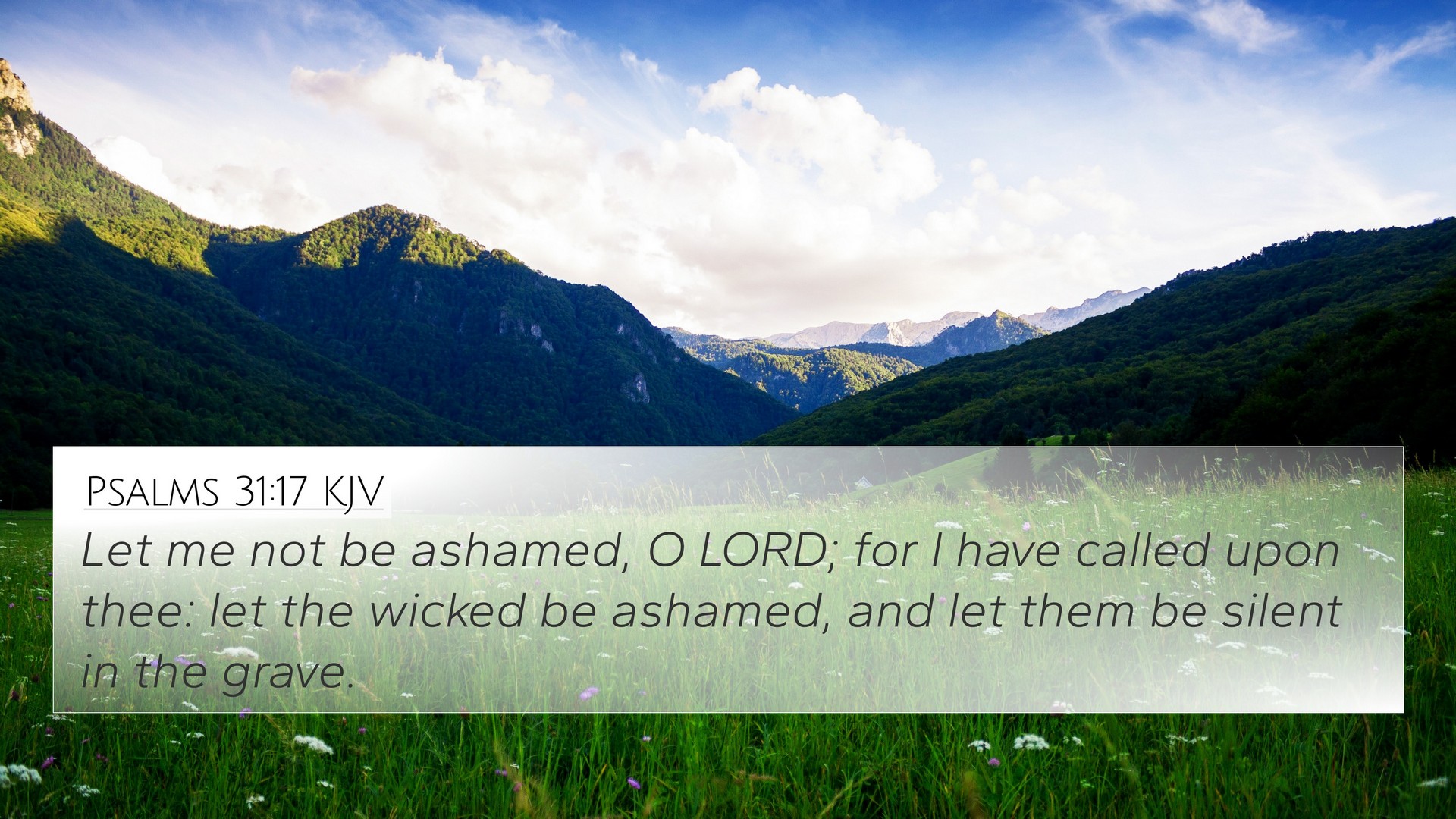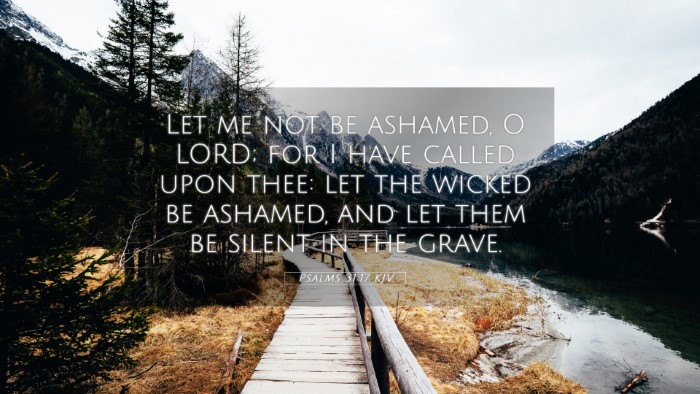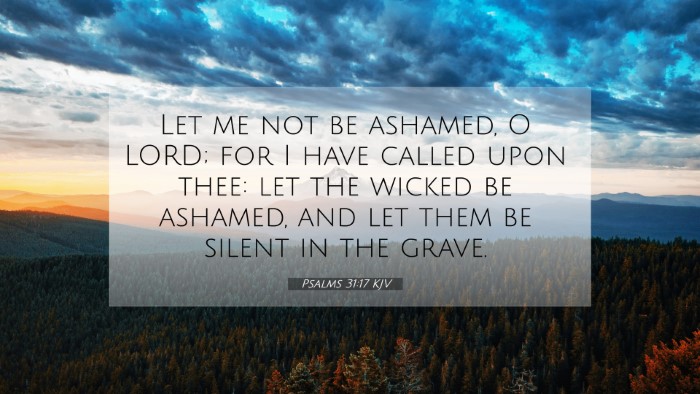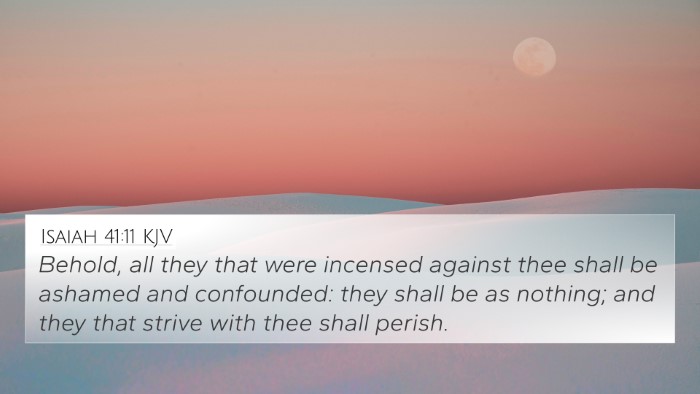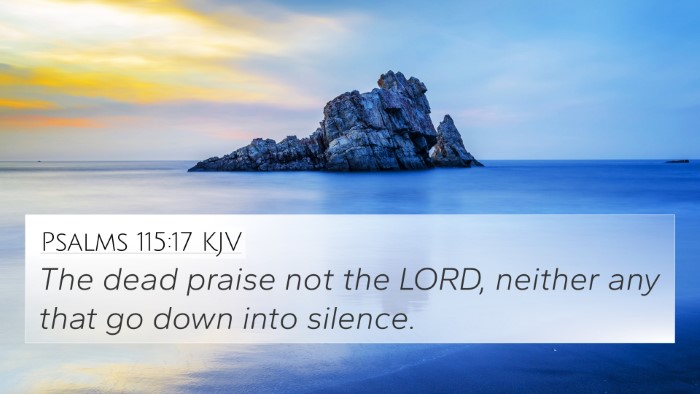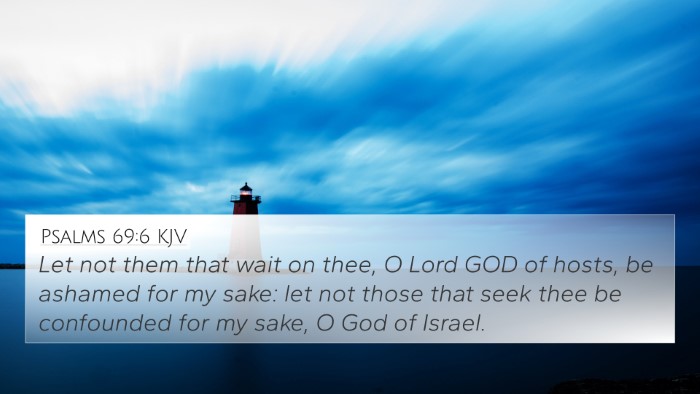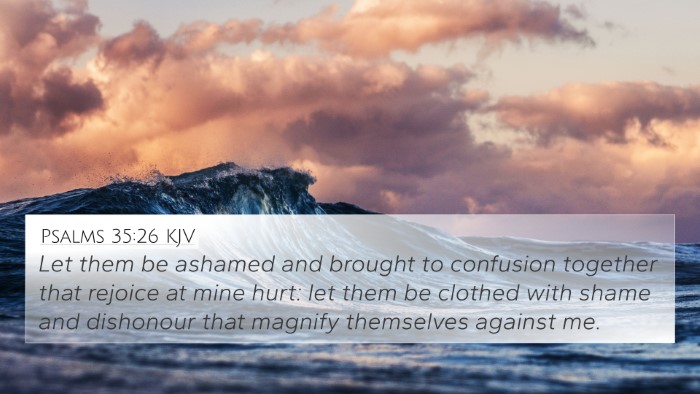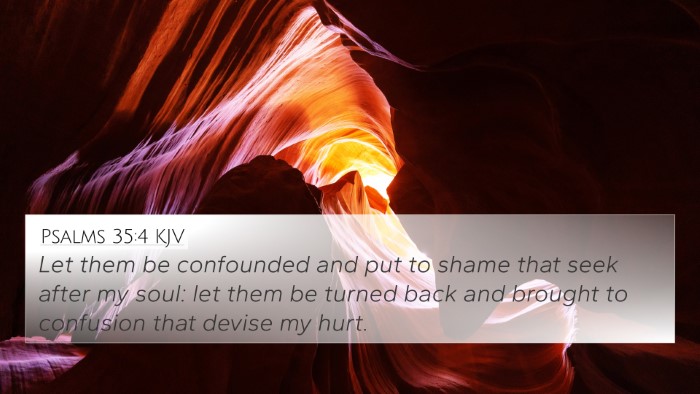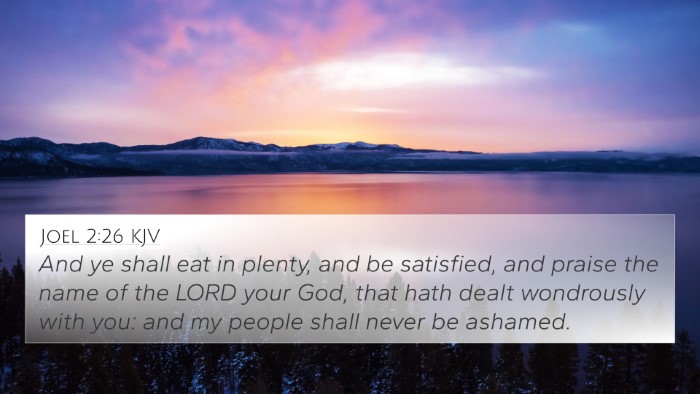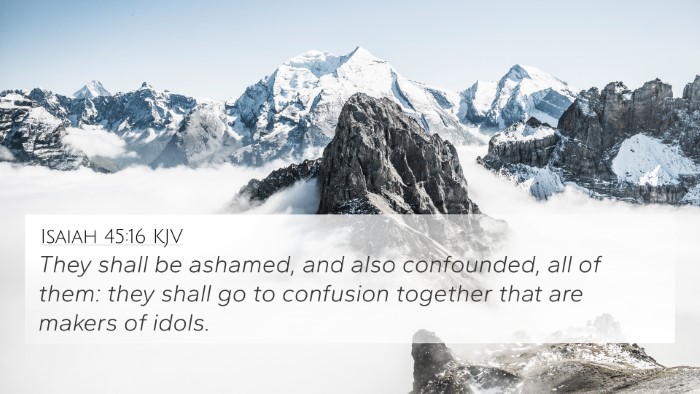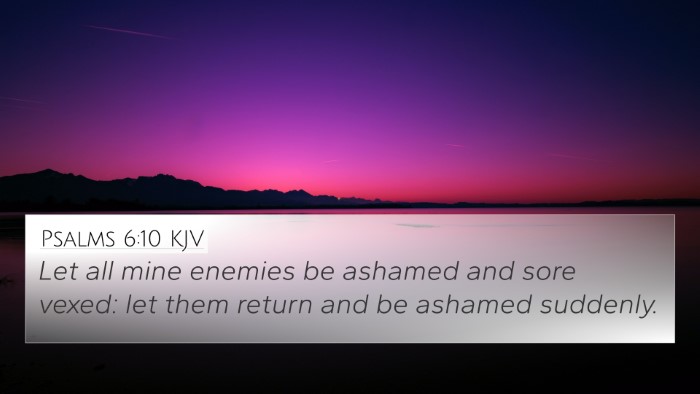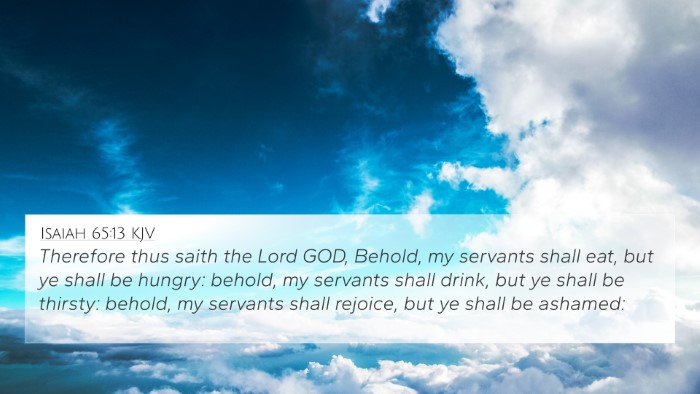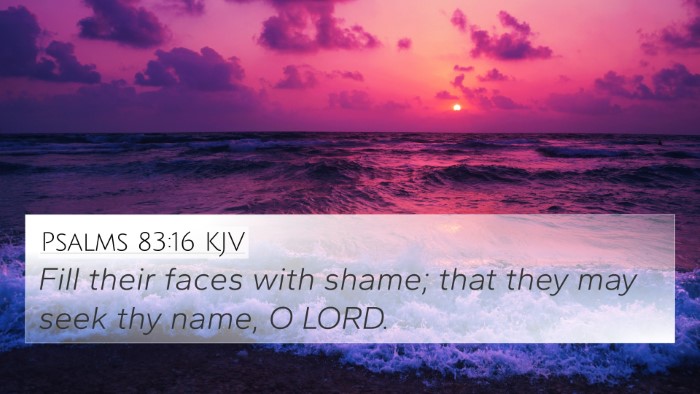Psalms 31:17 - Explanation and Analysis
Verse: "Let me not be ashamed, O Lord; for I have called upon thee: let the wicked be ashamed, and let them be silent in the grave."
Summary of Meaning
This verse expresses a profound plea for divine assistance in the face of shame and adversity. The psalmist contrasts his trust in God with the shame he wishes upon the wicked, emphasizing his reliance on God's intervention and favor.
Insights from Commentaries
Matthew Henry's Commentary
Matthew Henry highlights the personal appeal to God for deliverance from shame as a powerful act of faith. He stresses that calling upon God brings assurance against shame, especially in trials. The psalmist recognizes the ultimate futility and guilt of the wicked, who will face their fate in silence, while the faithful find hope in their cries to God.
Albert Barnes' Notes on the Bible
Albert Barnes notes that the request to not be ashamed reflects a deep-seated desire for vindication before enemies. He elaborates that the psalmist is assured of his righteousness in calling upon God, contrasting the inevitable disgrace that awaits the wicked. Barnes emphasizes that the grave symbolizes the finality of judgment and the silence of the wicked after their downfall.
Adam Clarke's Commentary
Adam Clarke points out that the plea to God is indicative of a personal relationship and reliance on divine support. He contrasts the ongoing life of the faithful against the shocking end of the wicked, reinforcing the importance of steadfast faith amidst trials. Clarke suggests that such prayers highlight a core biblical theme of trust in God amidst societal challenges, showcasing the dichotomy between believers and those who oppose them.
Key Themes and Connections
This verse can be linked to broader themes in scripture regarding shame, justice, and divine refuge. Numerous Bible verses provide thematic connections:
- Romans 10:11: "For the Scripture says, 'Whoever believes on Him will not be put to shame.'" – This emphasizes faith as a safeguard against shame.
- Psalm 34:5: "They looked to Him and were radiant, and their faces were not ashamed." – Reflects the assurance and confidence found in God.
- Isaiah 54:4: "Do not fear, for you will not be ashamed; neither be disgraced, for you will not be put to shame." – Further illustrates the theme of divine protection from disgrace.
- Psalm 25:3: "Indeed, none who wait for You shall be put to shame; they shall be ashamed who are wantonly treacherous." – Highlights the contrast between the faithful and the wicked.
- James 4:10: "Humble yourselves before the Lord, and He will exalt you." – This connects humility before God with eventual elevation, contrasting the fate of the proud.
- 1 Peter 3:16: "Having a good conscience, that when they defame you as evildoers, those who revile your good conduct in Christ may be ashamed." – Encourages faithfulness in the face of opposition.
- Revelation 21:8: "But the cowardly, unbelieving, abominable, murderers, sexually immoral, sorcerers, idolaters, and all liars shall have their part in the lake which burns with fire and brimstone." – Represents the ultimate fate of the wicked and their disgrace.
Understanding Through Cross-Referencing
Cross-referencing is essential for enriching biblical understanding and identifying connections between scriptures. Here are some recommendations for exploring these connections:
- Tools for Bible Cross-Referencing: Utilizing a Bible concordance can help find related verses.
- Cross-Reference Bible Study: Engage in comparative studies of verses that relate to themes of shame and vindication.
- Bible Reference Resources: Access various reference materials to uncover deeper connections.
- Bible Chain References: Use chain reference techniques to explore passages contextually.
FAQs on Psalms 31:17
What verses are related to Psalms 31:17?
Verses such as Romans 10:11, Psalm 34:5, and Isaiah 54:4 expand on themes presented in this psalm.
How does Psalms 31:17 connect with other Bible verses?
It connects through shared themes of divine support, shame, and the consequences faced by the wicked.
Why is cross-referencing important for understanding this verse?
Cross-referencing illuminates the holistic message of the Bible, showcasing inter-Biblical dialogues and thematic consistencies.
Conclusion
Psalms 31:17 serves as a powerful reminder of the psalmist's faith in God's justice. It emphasizes the distinction between the believer’s confidence in God’s salvation and the fate awaiting the unfaithful. Through cross-referencing related scriptures, one can gain a deeper understanding of this verse's implications and its relevance throughout the biblical narrative.
